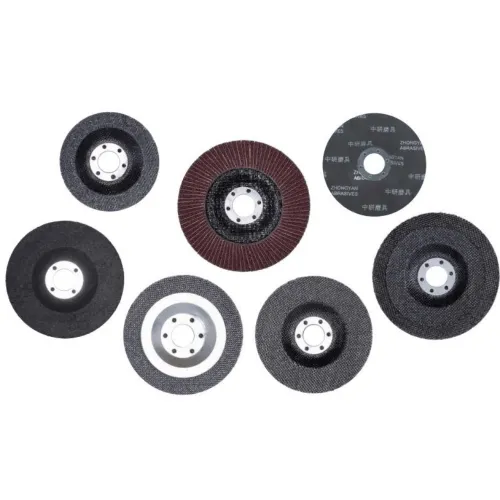Why Fiberglass Trays Are Essential for Workshop Efficiency
Superior Strength-to-Weight Ratio
Fiberglass trays stand out because they combine strength with lightness better than most metal or plastic options on the market today. Workers find them much easier to handle when moving around heavy stuff in workshops without worrying about breaking something. Tests actually show these trays can take a real beating before showing any signs of wear, which is why so many shops switch to them for carrying all sorts of bulky tools and machinery parts. Plus, since fiberglass doesn't weigh nearly as much as steel alternatives, mechanics don't get tired so quickly during those long days where they're constantly grabbing and moving trays back and forth across the shop floor. Combine all this durability with how simple they are to work with, and it's no wonder why fiberglass has become practically standard equipment in modern industrial settings where efficiency matters most.
Corrosion Resistance for Longevity
Fiberglass trays stand up really well against corrosion caused by chemicals and moisture, which means they tend to last much longer than metal ones that eventually rust away. Some industry data shows these fiberglass options might actually hold out about 30 percent longer when exposed to tough conditions. That kind of longevity cuts down on how often replacements are needed, saving money in the long run. What makes them even better is their natural resistance to chemicals. Regular metal trays usually need all sorts of treatments and coatings just to stay in decent shape, but fiberglass doesn't require any of that extra work. For workshops looking at their bottom line, switching to fiberglass isn't just about getting something that lasts longer it's also about slashing those ongoing maintenance expenses that eat into profits month after month.
Key Factors to Consider When Selecting Fiberglass Trays
Load Capacity and Durability Requirements
The first thing anyone should look at when picking out fiberglass trays is what kind of weight they need to hold up and how durable they need to be. Different trays handle different weights depending on where they'll be used, so figuring out exactly what's needed matters a lot. Good quality fiberglass trays stand up pretty well over time even under tough conditions, which makes sense why shops rely on them for heavier stuff. Alongside checking weight specs, it's smart to actually check what the manufacturer says about their product. Look through those spec sheets carefully to see if everything matches up with standard requirements for strength and safety in the field. Paying attention to all this stuff helps make sure whatever trays get bought will work not just today but also down the road as needs change in the workshop environment.
Workspace Dimensions and Tray Customization
When picking out fiberglass trays, taking workspace size and customization possibilities into account really matters. Getting exact measurements helps ensure the trays will fit just right in the available space, making better use of every inch. Many companies find that customizable fiberglass trays work wonders for them, especially when they have special requirements or need something different from standard products. The modular design aspect stands out too since it lets workshops rearrange things easily without wasting precious floor area. Workshops that take advantage of these custom features often see their operations run smoother overall. People who actually use these customized setups report noticeable improvements in how organized everything stays and how much faster tasks get done day after day.
Types of Fiberglass Trays for Specific Workshop Applications
Heavy-Duty Storage Trays for Tools
Workshops really need those heavy duty fiberglass trays when it comes to keeping everything organized and tools properly stored. Made tough enough to take on serious weight and constant wear and tear that regular storage solutions just can't handle. Most good quality ones come with extra reinforcement around the edges plus better impact resistance so they last longer even where there's lots of foot traffic. Mechanics who've switched to them report cleaner workspaces and fewer accidents because tools stay put where they belong. Plus workers find what they need faster without rummaging through clutter, which means jobs get done quicker overall. Many garage owners swear by these trays after trying other options that kept breaking down under normal shop conditions.
Modular Drainage Trays for Wet Environments
Restaurants and industrial kitchens get pretty damp places, so modular drainage trays really come in handy there. Made to handle all that moisture, these trays do what they're supposed to by directing water away from kitchen appliances before it can cause rust spots or worse, expensive water damage. Most experienced installers will tell anyone who asks that these trays aren't optional extras but necessary components for keeping things safe and up to code in food service areas. Good drainage isn't just about saving money on repairs either. It plays a big role in keeping the whole operation running smoothly while meeting those strict hygiene requirements. Fiberglass options stand out particularly well because they last longer and resist bacteria buildup compared to other materials, which means cleaner equipment and fewer headaches down the road for kitchen managers.
With the versatility to cater to different workshop needs, fiberglass trays provide reliable and efficient solutions, reinforcing the importance of selecting appropriate tray types based on specific application requirements.
How to Evaluate Fiberglass Tray Quality
Reinforcement Materials and Weave Patterns
When looking at fiberglass trays, quality assessment starts by checking what kind of reinforcement materials they use along with their weave patterns. What goes into making these materials makes a real difference for how strong and flexible the final product will be. Take high grade composite reinforcements for example many manufacturers find these create much tougher trays that can handle heavy weights without bending or breaking under pressure. The way fibers are woven matters too. Trays made with tighter weaves tend to hold up better against wear and tear because the structure itself becomes stronger. Industry professionals generally agree that going for trays built with better composite materials leads to improved weight capacity overall, which is why so many companies now specify this feature when ordering new equipment.
UV-Resistant Coatings and Certifications
Fiberglass trays exposed to sunlight need protection, which is why UV resistant coatings matter so much. Without these protective layers, the sun will gradually break down the material over time, cutting short what could otherwise be years of reliable service. When shopping around, take a close look at those certification marks too. They tell us someone actually put these trays through their paces in controlled testing environments to check if they stack up against established safety requirements. Most folks find that certified products come with longer warranties simply because manufacturers feel good about standing behind their work. While no one wants to think about replacement costs, having that extra layer of protection gives business owners something else to worry less about when running operations under harsh conditions day after day.

Installation Tips for Optimal Fiberglass Tray Performance
Proper Weight Distribution Strategies
Getting the weight right matters a lot when it comes to keeping fiberglass trays stable and safe, particularly around busy workshop areas where things get knocked around. Putting heavier stuff toward the bottom of the tray helps stop it from bending out of shape and keeps everything balanced so it won't tip over accidentally. People who follow this basic rule find their trays last longer without breaking down under stress. Some folks actually invest in special balancing devices or weighted bases that spread out the load better across the surface area. For anyone serious about making their fiberglass trays work properly day after day, getting this weight management thing figured out makes all the difference in practical terms.
Securing Trays in Mobile Workstations
Getting fiberglass trays securely fastened in mobile workstations matters a lot if we want to keep tools and materials intact while moving around. Most mobile configurations need some extra touches like wall mounts or lock mechanisms so those trays don't shift around and cause spills. These security measures actually make operations safer and work processes run smoother too. Industry pros stress the importance of thoughtful tray positioning when setting up mobile stations. Good placement saves time and boosts output across different job sites. That's why many shops invest in proper mounting solutions even though they cost a bit more upfront.
Cost vs. Value: Budgeting for Fiberglass Trays
Upfront Investment vs. Replacement Costs
Fiberglass trays do come with a higher price tag upfront when compared to cheaper alternatives, but they last so much longer that most businesses find them worth every penny in the end. Companies across various sectors report cutting down on replacement costs significantly since switching to these durable trays. The numbers back this up too many manufacturers see their bottom line improve after making the switch. Industry consultants regularly point out that smart money goes into quality materials like fiberglass for warehouses and manufacturing plants. While plastic or metal alternatives need replacing every few years at best, fiberglass can handle decades of heavy use before showing signs of wear. This means fewer disruptions to operations and less cash spent on constant repairs and replacements over time.
Long-Term Savings Through Reduced Maintenance
Fiberglass trays don't need much maintenance at all, which saves money over time when compared to metal or plastic options. When businesses switch to these trays, they actually save cash because they spend less on fixing things up or replacing them so often. Some real world examples show companies cutting down their maintenance budgets by switching to fiberglass. One factory saved thousands after making the change just two years ago. Less breaking down means fewer headaches for maintenance staff too. All told, going with fiberglass makes financial sense while keeping operations running smoothly without constant interruptions from damaged equipment.
Frequently Asked Questions
Why choose fiberglass trays over metal or plastic options?
Fiberglass trays offer a superior strength-to-weight ratio, greater corrosion resistance, and longer lifespan compared to metal or plastic alternatives, making them ideal for demanding environments and reducing overall maintenance costs.
How can fiberglass trays enhance workshop productivity?
Due to their lightweight nature and durability, fiberglass trays reduce worker fatigue during frequent movement, facilitating fast and efficient handling of tools and equipment, which boosts overall workshop productivity.
Are fiberglass trays customizable for specific workshop needs?
Yes, fiberglass trays can be customized to fit specific workspace dimensions and requirements, ensuring optimal space utilization and enhanced workflow efficiency.
Do fiberglass trays require special treatments for maintenance?
No, fiberglass trays inherently resist corrosion and chemical damage, eliminating the need for special treatments or coatings for maintenance.
What factors should be considered when selecting fiberglass trays?
Load capacity, workspace dimensions, customization options, and manufacturer's specifications for strength and safety are critical factors to consider when selecting fiberglass trays for your workshop.
Table of Contents
- Why Fiberglass Trays Are Essential for Workshop Efficiency
- Key Factors to Consider When Selecting Fiberglass Trays
- Types of Fiberglass Trays for Specific Workshop Applications
- How to Evaluate Fiberglass Tray Quality
- Installation Tips for Optimal Fiberglass Tray Performance
- Cost vs. Value: Budgeting for Fiberglass Trays
-
Frequently Asked Questions
- Why choose fiberglass trays over metal or plastic options?
- How can fiberglass trays enhance workshop productivity?
- Are fiberglass trays customizable for specific workshop needs?
- Do fiberglass trays require special treatments for maintenance?
- What factors should be considered when selecting fiberglass trays?


